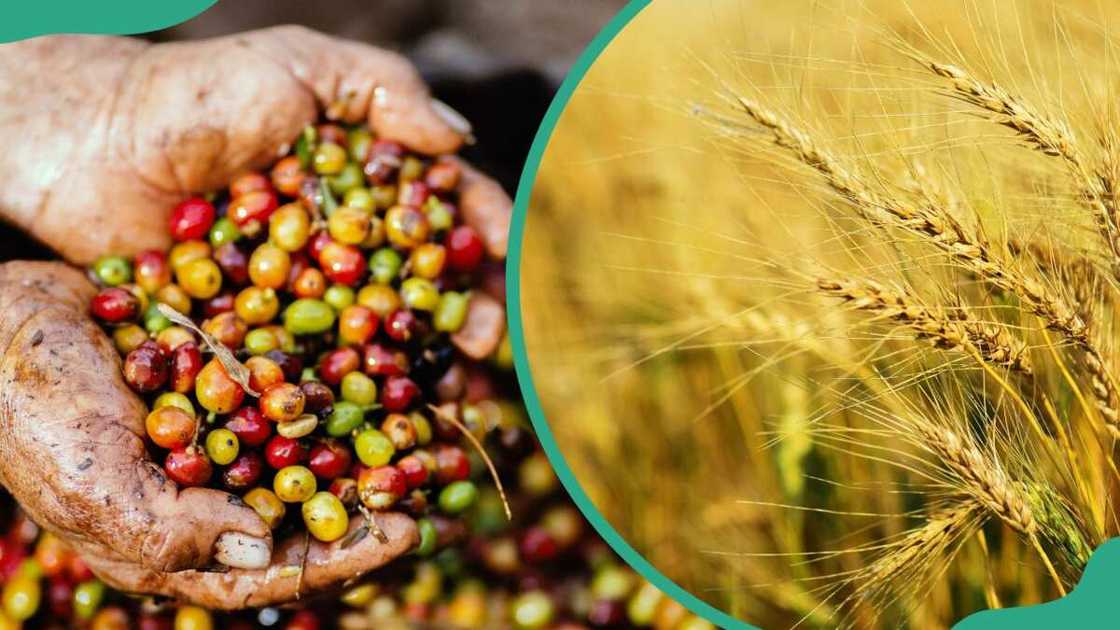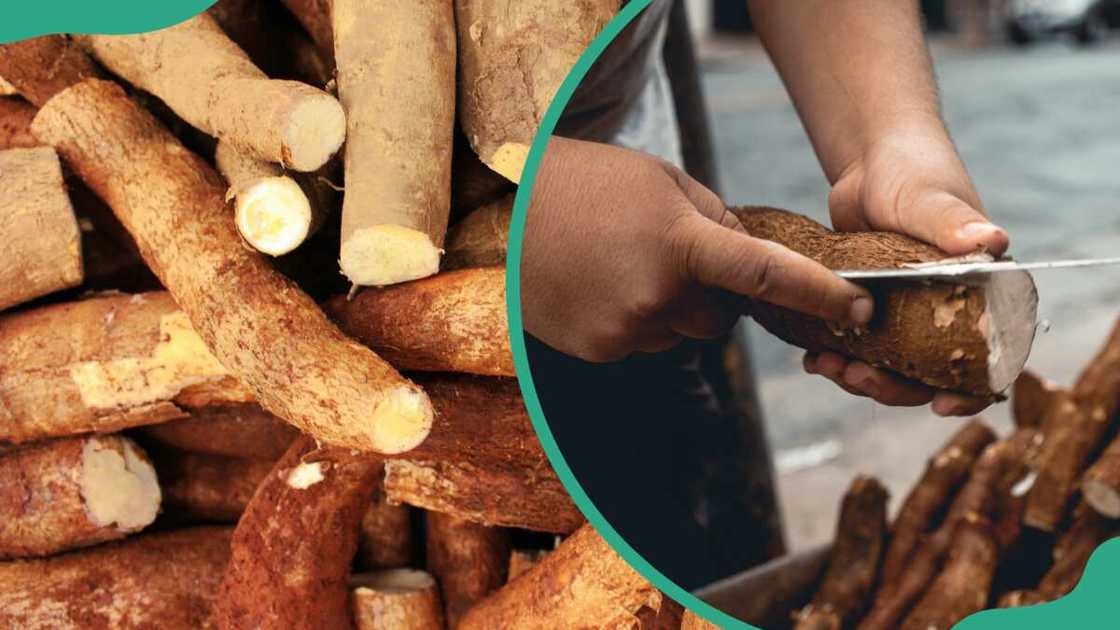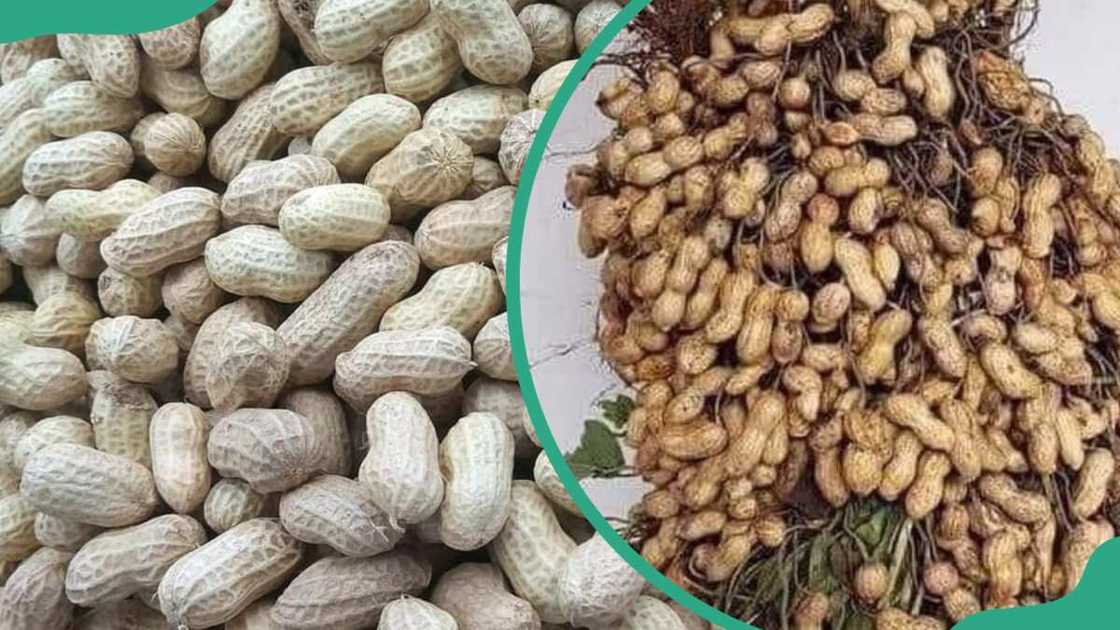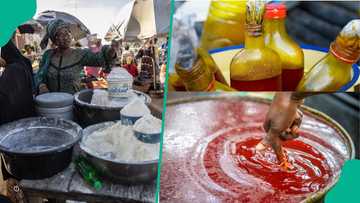A list of cash crops in Nigeria and where they are produced
Agriculture is a key sector of Nigeria's economy. A significant portion of Nigeria’s labour force works in farming. Agricultural products are divided into food crops and industrial crops. The latter are also called cash crops. Popular examples of cash crops in Nigeria include cocoa and oil palm.

Source: UGC
TABLE OF CONTENTS
Key takeaways
- Cocoa is one of Nigeria’s most profitable cash crops, primarily grown in Edo, Ondo, and Cross River.
- Cotton, a key northern crop, is cultivated in Kano, Kaduna, and Jigawa and is vital for the textile industry.
- Taraba and Benue states are major hubs for yam and rice production, highlighting the regional diversity of cash crops.
- Rubber, grown in Ogun, Delta, and Ondo, ranks among the most valuable crops due to its industrial uses.
List of cash crops in Nigeria and their location
Cash crops have significantly shaped Nigeria's economy, trade, and overall agricultural landscape. Here are examples and pictures of cash crops in Nigeria.
1. Oil palm
Nigeria is one of the world's leading producers of palm oil. Oil palm farming is common in the southern part of the country. Palm oil is highly versatile and used in food processing, cosmetics, and other industries. Among the 20 examples of cash crops in Nigeria, oil palm stands out as one of the most profitable.
The main oil palm-producing states are Enugu, Imo, Ondo, Edo, Cross River, Delta, Akwa Ibom, Ekiti, Bayelsa, Rivers, Anambra, Oyo, Abia, and Ogun.
2. Cotton
Cotton is mainly grown in northern Nigeria. It is a vital raw material for the textile industry. Production has faced challenges such as pest attacks and poor infrastructure.
When looking at cash crops in Nigeria and their location, cotton is widely cultivated in states such as Kano, Kaduna, and Oyo. Additionally, it is found in Ondo, Kwara, Katsina, Jigawa, Ogun, Kebbi, Sokoto, and Zamfara.
3. Cocoa
Nigeria is a major producer of cocoa beans, the main raw material for chocolate. Cocoa farming is common in the southwestern and southeastern regions of the country. Among the 10 examples of cash crops in Nigeria, cocoa is the leading agricultural export.
The top cocoa-producing states are Edo, Oyo, Osun, Ondo, Ogun, Cross River, Akwa Ibom, Ekiti, and Delta.
4. Cassava

Source: UGC
Cassava is one of the most important root crops in Nigeria. It provides significant income for farmers and processors across the country. The main cassava-producing states include Imo, Anambra, Kogi, Cross River, Enugu, Ogun, Ondo, Taraba, Benue, Delta, and Edo.
Cassava can be processed into fructose, which is widely used to sweeten fizzy drinks. It also holds a top place in the list of food crops in Nigeria because of its versatility and demand.
5. Rubber
Rubber is an important cash crop in Nigeria, mainly grown in the rainforest regions. It is used to manufacture products such as tyres, footwear, and other industrial goods.
The major rubber-producing states are in the southern part of the country, where rainfall is high. Rubber, along with other major crops, is often featured in PDFs listing cash crops in Nigeria.
6. Yam
Yam is abundantly cultivated in Nigeria, contributing to about 70% of global yam production. Its primary cultivation hub is Benue, and it is also grown in states like Cross River and Adamawa.
Among the 10 examples of food crops in Nigeria, yams are one of the most important due to their high demand and nutritional value. Other states involved in yam farming include Delta, Ekiti, Imo, Edo, Kaduna, Ogun, Kwara, Ondo, Osun, Plateau, and Oyo.
7. Cashew nuts
Cashew nut production has seen significant growth in Nigeria. Cashew nuts are used in the food industry, especially in snacks and confectionery products. Nigeria has become one of the top producers of cashew nuts globally. Cashew-producing states in Nigeria are: Kaduna, Abia, Kogi, Enugu, Kwara, Oyo, Niger, Imo, and Abuja FCT.
8. Tobacco
Nigeria has a growing tobacco industry, supplying raw material for cigarettes and other products. On maps showing lists of cash crops in Nigeria and their locations, tobacco cultivation mainly occurs in the southwest. It is particularly concentrated in states like Osun, Oyo, Kwara, and Sokoto.
9. Groundnut

Source: UGC
Groundnuts are mainly grown in northern Nigeria, especially in states like Kano and Kaduna. Additionally, they are found in Taraba, Bauchi, Borno, and Adamawa.
For a visual guide, pictures of cash crops in Nigeria often show groundnuts thriving in both home gardens and larger farms. Cultivating them is relatively easy and suitable for small- and large-scale farming.

Read also
Expert reacts as Tinubu approves inland dry ports for Ijebu-Ode, Moniya for more job creation
10. Soybean
Nigeria is the largest producer of soybeans. On lists of cash crops in Nigeria and their locations, soybean cultivation mainly occurs in states like Kaduna and Niger.
Additionally, it is grown in Kebbi, Nasarawa, Kwara, Oyo, Jigawa, Taraba, Borno, Benue, Bauchi, Lagos, Sokoto, Plateau, Zamfara, and Abuja FCT.
Soybeans are rich in vitamin B and provide several essential nutrients, including protein, iron, and calcium.
11. Sesame
Sesame is one of the important cash crops in Nigeria. Its seeds are high in oil, have a rich, nutty flavor, and are widely used as cooking oil. The crop is mainly grown in states like Benue, Nasarawa, and Jigawa. Sesame seeds are also a good source of protein, fiber, and healthy fats.
12. Rice
Rice is a staple food in Nigeria and one of the most widely consumed carbohydrate-rich sources. On a list of cash crops in Nigeria and their states, rice is mainly produced in Ebonyi, Kaduna, and Kano. Additionally, Niger, Benue, Taraba, Borno, Enugu, and Cross River also contribute to its cultivation.
13. Kolanut
On a list of cash crops in Nigeria and their uses, kolanut is noted for stimulating the central nervous system, increasing alertness and energy levels. Additional benefits of the nuts include boosting metabolism since they contain caffein. The crop is mainly grown in states like Ogun, Kwara, Osun, and Oyo.
14. Sugarcane

Source: UGC
Sugarcane is one of the major cash crops in Nigeria. It is commercially grown in states like Katsina, Taraba, and Kano. Additionally, it is cultivated in Adamawa, Jigawa, Kaduna, Kebbi, and Sokoto. The sugar produced serves as table sugar, a sweetener, and an edible preservative.
15. Timber
Nigeria is one of the largest timber exporters in West Africa. The major production areas are rainforest regions like Cross River, Edo, Ondo, Ogun, and Delta. Timber is an important crop because of its versatile uses in woodwork and furniture. It is also listed among key cash crops in Nigeria.
What are cash crops?
Cash crops are crops grown primarily for sale in the market rather than for personal consumption or subsistence. These crops are cultivated to generate income.
Is yam a cash crop in Nigeria?
Yes. Yam is one of the major cash crops in Nigeria. It is widely cultivated in states like Benue, Cross River, and Delta and contributes significantly to both local consumption and export.
What is the most profitable crop to grow in Nigeria?
Oil palm, cocoa, and cassava are among the most profitable crops in Nigeria. These crops generate high income for farmers due to strong local demand and export opportunities.
What are examples of cash crops?
Common examples of cash crops in Nigeria include cocoa, oil palm, groundnut, cotton, rubber, kolanut, rice, yam, and sugarcane. These crops are grown primarily for sale and export rather than personal consumption.
Is cassava a cash crop in Nigeria?
Yes. Cassava is a key cash crop in Nigeria. It is widely grown in states like Imo, Anambra, and Kogi and is processed into products like flour, starch, and fructose for both local use and export.
What is the most expensive crop?
Cocoa and cashew are among the most expensive crops in Nigeria due to high international demand and their value in the food and confectionery industries.
Nigeria is one of the biggest producers of cash crops in the world. Different kinds of cash crops in Nigeria are cultivated across the country due to its diverse climate zones. Farmers usually grow these crops on large-scale farms.
Legit.ng recently published an article about the national symbols of Nigeria and their meanings. National symbols are objects, signs, or emblems that are emblematic of a nation, typically marked by federal unity and a history of colonial independence.
These symbols serve the vital purpose of uniting the nation's diverse populace by offering iconic, verbal, or visual depictions of their shared history, aspirations, and core values.
Source: Legit.ng

Adrianna Simwa (Lifestyle writer) Adrianna Simwa is a content writer at Legit.ng where she has worked since mid-2022. She has written for many periodicals on a variety of subjects, including news, celebrities, and lifestyle, for more than three years. She has worked for The Hoth, The Standard Group and Triple P Media. Adrianna graduated from Nairobi University with a Bachelor of Fine Arts (BFA) in 2020. In 2023, Simwa finished the AFP course on Digital Investigation Techniques. You can reach her through her email: adriannasimwa@gmail.com

Sharon Boit (Lifestyle writer) Sharon J. Boit is a creative writer and researcher with over 10 years of experience. She began her career as a project manager and researcher at the Center for Urban Research and Innovations, University of Nairobi. Sharon has written articles and blog posts for MSN News, Ihamba Adventures, and Industry Biz. She joined Legit.ng as a Lifestyle Writer in October 2024, covering entertainment, sports, education, and finance. You can reach Sharon J. Boit by email at boit@gmail.com.






